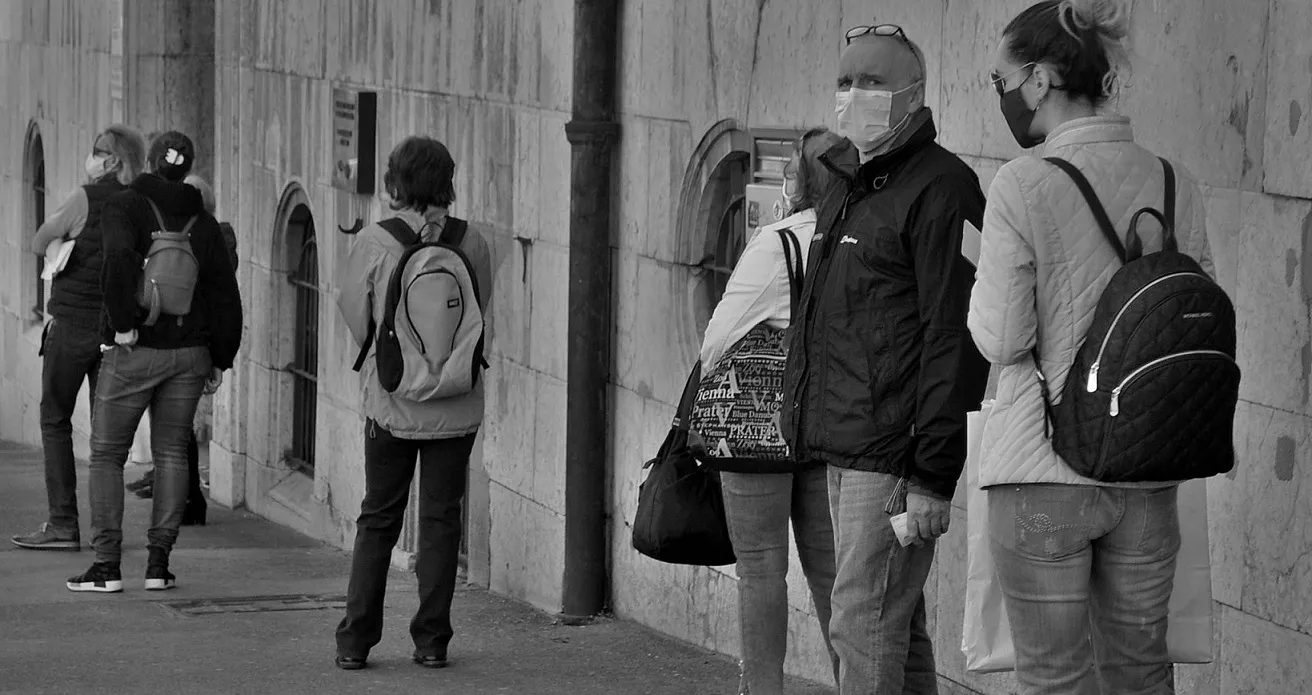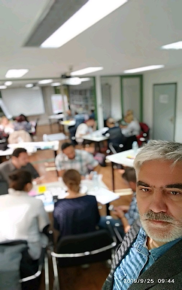Electoral Risk Management and the COVID-19 pandemic: The case of parliamentary elections in North Macedonia

North Macedonia was among the first countries to postpone and then hold elections in Europe since the pandemic started. Organizing elections amid a COVID-19 pandemic posed several challenges for the State Election Commission (SEC) in Macedonia, the Government and the various political parties competing. One of the tools used to overcome these challenges included the Electoral Risk Management Tool (ERMTool) developed by International IDEA in 2013.
Disclaimer: Views expressed in this commentary are those of the author. This commentary is independent of specific national or political interests. Views expressed do not necessarily represent the institutional position of International IDEA, its Board of Advisers or its Council of Member States.
Postponement
The 2020 Parliamentary Elections were due to take place on 12 April, ahead of schedule. But on 21 March, amid uncertainties posed by the COVID-19 pandemic, the electoral process was indefinitely suspended by government decree. The Government and opposition parties held several consultations to achieve mutual agreement on the date of the elections. Reportedly, the ruling party coalition insisted on proceeding with the elections as soon as possible, whereas the opposition called for a longer postponement. From March, all parties started focusing their political rhetoric on the effectiveness of combatting the pandemic and its social and economic effects. While travel and health restrictions across the region posed challenges to the deployment of observation missions, the opposition insisted that the presence of OSCE Office for Democratic institutions and Human Rights (OSCE/ODIHR) observers was a condition for agreement on the election date.
Election Day
In the end, elections took place on 15 July 2020 after a 3-month delay. Voters went to the polls amid rising case numbers of COVID-19 infection. On election day, masks for voters were mandatory. Also, polling stations remained open for an extended period, from 06:00 to 21:00 rather than 07:00 to 19:00. The State Election Commission (SEC) implemented early voting for those with COVID-19 and those in quarantine to cast their ballots from home. The elderly and prison inmates were also able to cast their ballots in advance.
The count was live-streamed on Youtube due to a technical issue with the SEC's website. Authorities attributed the failure to a possible hacking attempt. According to the results, the centre-left Social Democrats won the most votes, with 36.3 per cent or 46 seats, falling short of the 61 seats needed to form a majority in the 120-seat parliament. According to Preliminary statements from the OSCE, which deployed a special assessment mission to Skopje, "elections where generally administered effectively amid adjustments in response to the COVID-19 pandemic, but legal stability was undermined by substantial revisions to the electoral code". Voter turnout was lower than in previous years, at 51.94 per cent, compared to 66.79 per cent in 2016.
Electoral Risk Management
In June 2020, the SEC requested the Centre for Good Governance and Integrity—HUB to support the commission on electoral risk management by signing a cooperation memorandum. HUB is a non-governmental organization established in 2020 to promote good governance practices within the public institutions.
The ERMTool was first introduced in Macedonia in 2015 through a joint project between the International IDEA, Organization for Security and Cooperation in Europe (OSCE), and the State Election Commission.
The 2020 project aimed to support the SEC's ability to identify, analyze and mitigate electoral risks. The project was introduced to political parties to establish a continuous and regular exchange of information with the SEC and to take joint activities to prevent electoral anomalies. The HUB conducted surveys both before and after the early parliamentary election on 15 July. All findings from the surveys were fed into the ERMTool and then analyzed. The HUB shared reports (risk alerts)and recommendations with SEC continuously. At the end of the project, the HUB transferred the so-called risk and action register to SEC for future elections.
To identify regions with increased electoral risk before 15 July, HUB posted an online questionnaire to the Municipal Electoral Committees (MEC), domestic observers, and political parties. After the elections, HUB conducted a telephone survey with representatives of the MEC and electoral boards. Subsequently, the stakeholders' responsiveness and willingness to provide requested information appeared to be the biggest challenge in implementing the ERM approach. Although we had performed a similar assessment in the past following the International IDEA guidelines, additional challenges emerged during the COVID-19 elections. Some of the specific risks included: the appearance of disinformation, and fake news related to the COVID-19 spread, adjusting the legal framework to the needed COVID-19 protection measures shortly before elections. A significant factor was the exchange between the national institutions on who would take responsibility for the health risks during the voting process and who would define the voting protocols as all of these discussions were made political.
Lessons learned
The spread of the COVID-19 requires localized responses, responsible and well-informed citizens, and political parties that follow the prescribed health and safety protocols. Well structured, carefully planned, and an efficient communication strategy of the EMB is the crucial component of well-organized elections.
Overcoming individual interests and improved collaboration among electoral stakeholders requires building a framework based on trust. In the arena of conflicting political interests, the ERM methodology's analytical approach, adherence to international standards, and facilitation of an independent entity can foster an evidence-based discussion and efficient consensus building.
In our case, the most significant challenge was to secure feedback and valid information. The low response rate to the online questionnaire (see Figure 1) from the Municipal Electoral Commissions was primarily due to a lack of feedback culture. The most frequent excuse was the lack of time, other priorities, and business with something else. Subsequently, the post-election survey was conducted by telephone calls and generated 98 per cent of the responses.
Figure 1. ERMTool generated map – pre-elections (5-10 July 2020) responses to the online questionnaire from Municipal Elections Commissions (MEC)

MEC members. White - no responses at all.
In the pre-election period, the political parties were distrustful and suspicious and did not share their opinion or concerns. In the post-election period, the parties were more open to discuss the problems they faced during the elections but remained skeptical towards recommendations that would strengthen information sharing.
Building a culture of collaboration and feedback is necessary to ensure a transparent analytical approach to the electoral process. The HUB will continue building and nurturing the communication channels between the electoral stakeholders to establish a centre that will facilitate and support evidence-based discussions and decision making.
This project was supported by the Embassy of the Kingdom of the Netherlands and the International Republican Institute. International IDEA provided online training, consultations, and expert support.




